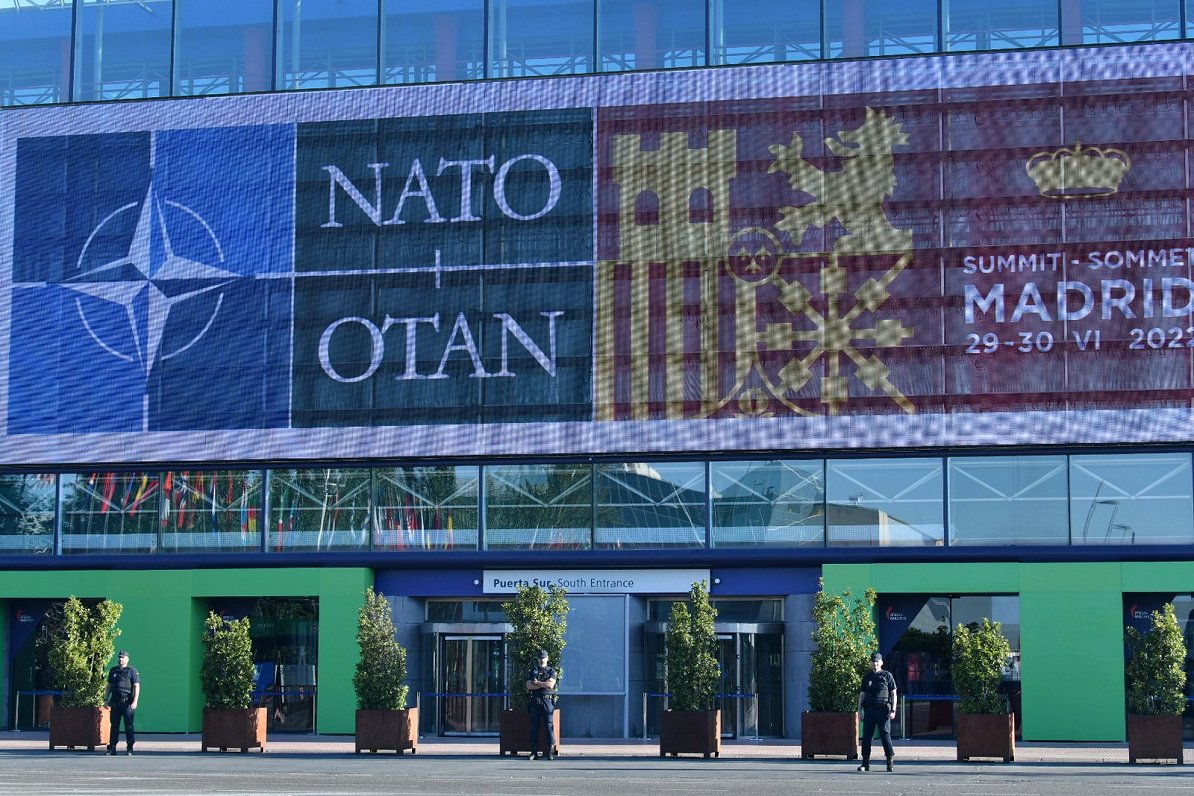A statement from the White House said the U.S. would introduce "Enhanced rotational deployments in the Baltic region including armored, aviation, air defense, and special operations forces, building further interoperability and intensified training with these Allies, and enhancing our ability to quickly reinforce and provide combat-credible defenses. We will maintain a persistent, heel-to-toe presence in the region and will intensify training with our Baltic Allies." No specific force strengths or timeframes were given, though.
Similarly, a joint declaration issued by NATO leaders at their ongoing summit meeting in Madrid promised an increased troop presence in the region, though again without much in the way of specifics.
"Allies have committed to deploy additional robust in-place combat-ready forces on our eastern flank, to be scaled up from the existing battlegroups to brigade-size units where and when required, underpinned by credible rapidly available reinforcements, prepositioned equipment, and enhanced command and control," the joint declaration says.

The statements of intent were welcomed by Latvian officials. President Egils Levits said the summit was making "historic" decisions.
"In preparation for the summit, Latvia, together with other Baltic states, has done a great deal to raise the Allies' awareness of our security needs. The Allies have heard us and their support is genuine. We appreciate this solidarity,” Levits said.
"In terms of decisions, the Madrid Summit is as important as the 2016 NATO Summit in Warsaw, when it was decided to establish an expanded NATO presence in the Baltics and Poland," he added, while noting that at the same time, the decisions of the summit will require Latvia to make additional investments in its own defensive capabilities, including reaching a defense budget worth 2.5% of GDP by 2025.
Similar sentiments were expressed by Foreign Minister Edgars Rinkēvičs...
Welcome the announcement by @POTUS @JoeBiden on the enhanced US rotational deployments in the Baltic region including armored, aviation, air defense, and special operations forces, grateful to our 🇺🇸 allies for the support, it is the right step to counter Russia #StrongerTogether
— Edgars Rinkēvičs (@edgarsrinkevics) June 29, 2022
...and Prime Minster Krišjānis Kariņs.
Welcome the historic @NATO decision in #MadridSummit to strengthen the permanent presence in the Eastern Flank. Every inch of our lands will be defended. https://t.co/ETPYtAAYUs
— Krišjānis Kariņš (@krisjaniskarins) June 29, 2022
As recently reported by LSM, Latvia already hosts the largest NATO battlegroup in the region, with nearly 1,900 troops. That number is likely to double in an upgrade to brigade strength.
In a further development Wednesday Latvian Defense Minister Artis Pabriks and Canadian Defense Minister Anita Anand signed a declaration on strengthening and further developing NATO's expanded presence in Latvia, bringing it up to brigade level, in line with the decisions taken at the NATO summit in Madrid.
"The Allied Battlegroup in Latvia will grow from a battalion to a brigade-level unit, clearly demonstrating NATO's commitment to defending every inch of Latvia. However, this agreement is not unilateral, therefore we, as the host country, will have to make significant investments in the development of military infrastructure and increase of the personnel of the Latvian Army,” Pabriks said.
According to the declaration, Canada undertakes to continue to lead the battle group for NATO's expanded presence in Latvia, as well as to co-finance with NATO members the necessary infrastructure to further strengthen the Alliance's deterrence and defense capabilities.
After the summit, Latvia, together with its allies, will begin the planning process to establish a full-fledged multinational brigade as soon as possible, a Defense Ministry statement said.
📸FOTO: Sadarbības memoranda parakstīšana starp Latviju un Kanādu par pakāpenisku #NATO paplašinātās klātbūtnes stiprināšanu līdz brigādes līmenim Kanādas vadībā. 🇱🇻🇨🇦 pic.twitter.com/PS6yPUcKts
— Valsts prezidenta kanceleja (@Rigas_pils) June 29, 2022





























